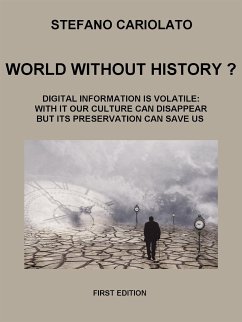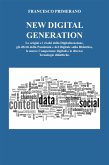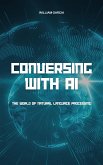In the mid-twentieth century the digital revolution began with the introduction of the first electronic computers, which were first introduced into companies and in the state bodies then they spread strongly in the private houses as personal computers; later all these computers were connected to each other by a global telecommunication network called Internet, which had a massive development at the end of the century becoming the backbone of the worldwide information circulation.
At the beginning of the 21st century the digital revolution was completed and the information of any kind (texts, images, video clips and TV broadcasts, music and songs, WEB pages) started to be recorded and disseminated in digital form rather than with a traditional media (paper, film, magnetic tape), with a displacement that engaged all human activities of any type, both collective and individual.
While the development of digital technology continue at an accelerated pace the problem of information retention begin to arise, what was previously mainly entrusted to printing on paper and now is in abandonment phase: printed records are increasingly transformed into digital format and the new information is generated directly in electronic form. But while a book or a letter could be read directly even centuries after their writing, digital information has a short life because of the same technological development, that makes quickly obsolete any recording by irreversibly mutating both its hardware and reading software; other recordings arethen volatile by their very nature, such as e-mails or WEB pages, even if they could host information that could be of value in the future.
Moreover digital recordings are carried out in a great variety of different formats, sometimes incompatible with each other or subject themselves to obsolescence, thus unnecessarily complicating the task of preserving their content.
Most part of human culture, gradually poured into electronic form, is now jeopardized, and we risk of delivering to posterity a world without history: this book describes the current situation and what is sought to do to remedy the danger.
At the beginning of the 21st century the digital revolution was completed and the information of any kind (texts, images, video clips and TV broadcasts, music and songs, WEB pages) started to be recorded and disseminated in digital form rather than with a traditional media (paper, film, magnetic tape), with a displacement that engaged all human activities of any type, both collective and individual.
While the development of digital technology continue at an accelerated pace the problem of information retention begin to arise, what was previously mainly entrusted to printing on paper and now is in abandonment phase: printed records are increasingly transformed into digital format and the new information is generated directly in electronic form. But while a book or a letter could be read directly even centuries after their writing, digital information has a short life because of the same technological development, that makes quickly obsolete any recording by irreversibly mutating both its hardware and reading software; other recordings arethen volatile by their very nature, such as e-mails or WEB pages, even if they could host information that could be of value in the future.
Moreover digital recordings are carried out in a great variety of different formats, sometimes incompatible with each other or subject themselves to obsolescence, thus unnecessarily complicating the task of preserving their content.
Most part of human culture, gradually poured into electronic form, is now jeopardized, and we risk of delivering to posterity a world without history: this book describes the current situation and what is sought to do to remedy the danger.









